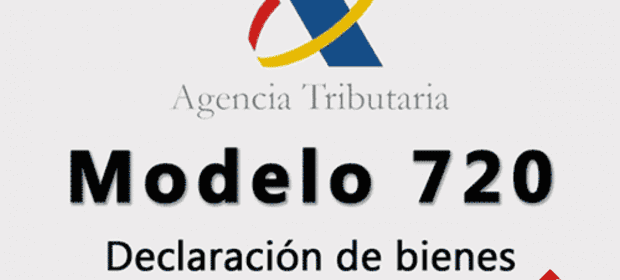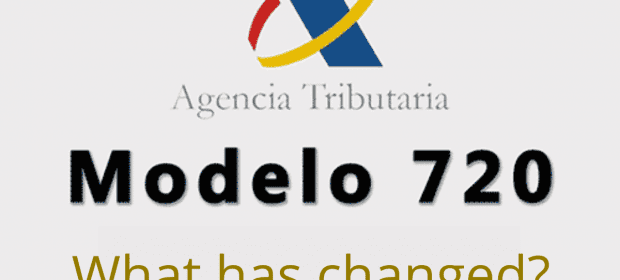First, an update on Brexit
Whilst departure terms between the UK and EU are yet to be finalised, the status of British expatriates living in Europe has largely been agreed, in principle at least. From state pension escalation, to health care cover and rights on residency and employment, first phase negotiations concluded (eventually) with consensus on protection of citizens’ rights.
Of course, agreement still needs to be formalised and as the EU/UK progress agreement highlights, ‘nothing is agreed until everything is agreed’. But for now, at least, it is looking like existing expatriates’ rights are likely to be recognised beyond April 2019.
Buying a property
From the initial and legally binding ‘pago de arras’, the legal process of buying a property is markedly different from UK conveyancing.
It is important to engage a knowledgeable lawyer, ideally English speaking if you do not speak Spanish. Your lawyer will liaise with and arrange your meeting with a notary, which is legal a requirement in Spain for the property buying process. Resident and Non-resident tax obligations vary and require reviewing on an individual basis.
Mortgages
Seek guidance on the wide range of borrowing options available, from the national banks to smaller regional lenders. An independent mortgage specialist will identify the most competitive and flexible mortgages available and ensure suitability for your specific borrowing requirements, as well as introducing you to trustworthy and reliable legal and professional services, a must in Spain when purchasing or selling property. It is important to note that banks do not make mortgage offers without the property being secured. (See below for our independent mortgage brokers, Spectrum International Mortgages Spain)
Bank accounts
Familiarise yourself with the various current and savings accounts available, from the cuenta corriente (current account) to tax efficient ‘Cuentas de Ahorro’, or savings accounts. It is important also to note that bank managers tend to move branches frequently, so finding a bank you like is more important in the longer term than a friendly bank manager or ‘Director’.
Tax Residency
Please note you cannot choose where to be tax resident. The law dictates when this will happen and you do not necessarily have to complete any forms to be treated as tax resident. If you meet one of these following conditions you will be a tax resident:
● If you are in Spain for more than 183 days in any calendar year
● If your “centre of interests” are considered to be in Spain eg. If your main income is in Spain, your main home is in Spain or if your spouse and children live in Spain.
● Residency commences from the first day that you declare Spain to be your permanent home.
Tax declarations
When you move to Spain, the Spanish tax authority becomes your controlling tax authority, even if you pay tax elsewhere. The tax year is the calendar year. Worldwide income needs to be declared annually (between April and end of June) and the relevant form is called “La Renta”. (Income taxes and capital gains tax are called IRPF). UK source income from dividends and property rental, whilst taxable in the UK, should also be included in your Spanish tax return. The double tax treaty between Spain and the UK should ensure an accurate tax assessment, but it is important to check that liabilities have been calculated correctly.
Note too that tax-free investments in the UK, such as ISAs and premium bonds, do not hold the same favourable status in Spain. For permanent and long-term Spanish residents, there are tax efficient alternatives available (see Investment section below). Without exception, make full disclosure of income and assets, recognising that there is automatic exchange of tax and financial information between the two countries, under global Common Reporting Standards adopted by the EU in 2017.
The Modelo 720 or M720 is a requirement for all Spanish residents, including foreigners, to complete. It is an informative overseas asset declaration for assets of over 50,000 euros including property, banks accounts, offshore investments, shares and other assets. This declaration needs to be completed by March 31st following the first full fiscal year of residency. As this declaration can only be completed electronically we highly recommend the involvement of a qualified ‘gestor’ or tax accountant, as hefty penalties could be imposed for providing erroneous information.
Wealth tax obligations change on a regular basis and vary between autonomous regions, so obtaining the latest local rates applicable is important.
Beckham Law
For employed individuals earning over 60,000 euros pa and having not been resident in Spain for the past 10 years before becoming tax resident, the possibility exists of being paid as a non-resident for tax purposes and up to five full tax years. The rate of income tax is 24% plus you avoid the need to declare M720. It is available to company owners as long as they (and their immediate family) do not own more than 25% of the shares. The ability to join this scheme needs to be assessed on a case by case basis.
Inheritance tax
This is a subject that causes some confusion on moving to Spain. In Spain, it is the beneficiaries that are assessed for Inheritance tax. In the UK it is the estate of the person who has died that is assessed for Inheritance tax. This means that different planning is required in Spain although it is possible to plan for both the UK and for Spain in some circumstances.
Like wealth tax, inheritance tax varies from autonomous community to autonomous community. Advice in the community where you are living is therefore very important.
Healthcare
Spain’s comprehensive and efficient healthcare system is considered to be at least on a par with the UK and better in many areas. It is generally accessible to expatriates but the extent of cover available to you, and how to secure access to it, depends on individual circumstances. Eligibility for a Tarjeta de Salud or holding suitable private health insurance, or a combination of the two, are essential to avoid unexpected and expensive bills for medical treatment. This especially applies to dental treatment which is typically very costly in Spain.
Currency exchange
Relying on your bank for foreign exchange transfers is generally an expensive option. Numerous currency transfer specialists provide not only competitive terms and secure, swift transactions, but a range of other benefits including on-line facilities for regular payments, forward contracts and rate tracking alerts.
Pensions
Pensions are a technically complex subject where reliable advice is essential. From understanding UK state pension entitlement, to reviewing all existing personal and/or occupational schemes, there is scope to increase the value, flexibility and security of your retirement finances. British expatriates living in Europe currently enjoy pension freedoms and transfer opportunities that are unavailable elsewhere. However, in relation to both Brexit and ongoing UK pension reform, it is unlikely this flexibility will remain beyond the short term.
Even if Brexit transitional arrangements encourage a smoother economic separation, further changes to pension regulations are already on the UK domestic agenda. Consult an authorised, qualified and experienced specialist to arrange a comprehensive review of your existing pension arrangements. Be wary of any recommendation to transfer a UK pension without receiving a detailed report which explains clearly why a transfer is in your best interests.
Wills and estate planning
Spanish forced heir-ship rules restricts the extent to which you can freely transfer wealth during your lifetime. It also, unless you have planned properly, governs how your estate is distributed upon death – most notably, prescribed heir-ship laws override individual choice when it comes to nominating beneficiaries. However, if you are a British expatriate living in Spain, EU legislation allows you to specify that your estate be administered according to the laws of your country of nationality, rather than your country of residence. Doing so provides valuable flexibility and control over the eventual distribution of your estate. Note this relates to probate law and is unconnected to inheritance tax law.
It is important to establish and maintain a valid will or testamento which fully reflects your intentions. A notary will prepare your will in the appropriate format.
Investments and savings
Recognising that UK assets are taxable in Spain, and that tax free in the UK doesn’t translate to the same in Spain, consider switching to Spanish approved tax efficient investments. Care is needed with possible tax consequences on the disposal of UK assets, so always seek professional advice before restructuring. Seguro de vida are widely regarded as the most tax efficient solution available in GBP and EUR (and other currencies), in English language and with investment flexibility to match individual objectives and risk profiles. Technically a life insurance policy, but in practice an investment vehicle and this is the most tax efficient means of investment in Spain –
Low cost, straightforward, beneficiary nomination, IHT exemptions/reliefs, capital access, income option, portability (UK return),
IFA
Even for the financially experienced it is worth seeking professional advice, if only to ensure that all available investment and tax planning opportunities are being fully utilised. Only deal with an independent, appropriately authorised firm and ideally someone living and working locally who has been recommended by other expatriates in the area.
The regulatory status of an independent broker can be checked on-line at; http://www.dgsfp.mineco.es/regpublicos/pui/pui.aspx, and at any initial discussion with an individual you should be informed about the advisory process, from fact finding and presenting suitable recommendations to responsibility for investment management and ongoing client servicing.








